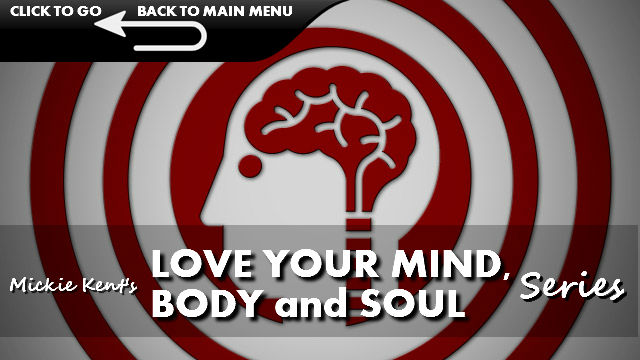
“Love your brain by being full of beneficial thought. Thoughtfulness is an important step towards awareness. Then notice what you think; when we think high we won't aim low.”
— Mickie Kent
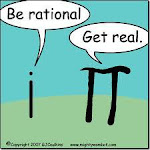 Science has showed us that the world is much bigger than we previously thought, and that we are not the centre of the universe. We live on one planet among many, in a solar system among many, in a galaxy among many. This view - especially when religion once taught us we were a special creation - brought a demotion to our ego as a species. Was science telling us that we were no longer special?
Science has showed us that the world is much bigger than we previously thought, and that we are not the centre of the universe. We live on one planet among many, in a solar system among many, in a galaxy among many. This view - especially when religion once taught us we were a special creation - brought a demotion to our ego as a species. Was science telling us that we were no longer special?
Not at all. As we delved deeper to search for a central brain to the universe, the search led us straight back to ourselves in ways we couldn't have contemplated. When cosmologists investigated our creation, they uncovered a process guided by the laws of physics. In the beginning was not the word, or thought, but gas made of simple atoms. Over time, stars transformed these elements into complex atoms. As these heavier atoms spread throughout the universe, them combined to create everything we can see. To cosmologists this whole process was driven not by a creator, but by fundamental physical laws - the laws of nature.
 Among these laws were the values for the speed of light, the force of gravity, and the charge carried by electrons. The difference between these laws and human-made ones are that we all obey them (unless we find technology to deflect them) - whether we like it or not. In this sense, there are no exceptions for the laws of nature. Their precise values were set at the very beginning of our universe, in the big bang. The rest was just mathematics, so it is said. But could it really be that simple?
Among these laws were the values for the speed of light, the force of gravity, and the charge carried by electrons. The difference between these laws and human-made ones are that we all obey them (unless we find technology to deflect them) - whether we like it or not. In this sense, there are no exceptions for the laws of nature. Their precise values were set at the very beginning of our universe, in the big bang. The rest was just mathematics, so it is said. But could it really be that simple?
Mathematics might explain how planets form, but does it explain everything? What is it in those molecules that makes up a human being - or any animal - that makes one behave differently than another? Life should predictable when looked at its basic ingredients, but even if it's true that life begins from the simple rules of nature, it becomes baffling in its complexity.
When science dismantled the notion of life with a purpose, it was because in a rational universe there is no need for a creator. There is no design to life, it behaves interestingly as a consequence of random behaviour. In this random universe, there is no special purpose to our evolution. We are simply the result of atoms, time and mathematics. Yet, there are some cosmologists that see a greater meaning in our existence. They do not agree that we are coincidental to the universe; the universe, they argue, is irrelevant without us. Wouldn't life in the cosmos be a complete waste with no one to behold it, and no brain to process it and make meaning out of it?
According to this theory, it's only life that gives any sort of meaning to the universe - particularly if we turn out to be the only life in the observable universe. This is called anthropic reasoning, where our creation is still driven by mathematics and the laws of nature, but there is something very mysterious, indeed very special, in the laws of nature themselves. At the big bang, if they had worked slightly differently, there may not have been life at all. For example, just the tiniest adjustment to the value of gravity - which determines how much things are attracted to each other, from us to the Earth, to the Earth circling our Sun, to the stars held in place in great galaxies billions of light years away - and our universe might not have emerged at all.
If gravity were too strong we would be crushed, too light and no stars would form, and no planets either. And the rest of the laws are just as finely tuned. Any adjustments to their values and we would cease to exist. It is not known why they are set as they are, but if we are here because of million-to-one chance, then can it mean that it wasn't chance after all?
Nature does seemed to be fine-tuned to allow our creation; but could this somehow have been influenced by our own existence? This is an idea that most physicists abhor, as they want life to be controlled by pure mathematics, and not existence, and perhaps there is a rational explanation for why the values of nature were so finely set for life at the beginning of our universe.
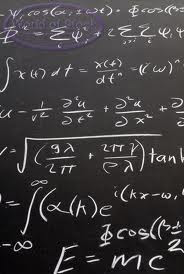 Until we can understand the nature of those first moments, we should not assume any reason for their values. And at the moment, the further we go back in cosmic history, the more uncertain things become because the environments were so extreme, and thus make it difficult for us to replicate in experiments on Earth. Once we can do this, we may discover that the reasons for the fine-tuning are not mystical, and it falls back straight into the realms of physics and mathematics. The main one is that we shall discover these fine adjustments were merely accidental, according to some mathematical equation that has nothing whatsoever to do with our existence. That we were just lucky to have the maths on our side.
Until we can understand the nature of those first moments, we should not assume any reason for their values. And at the moment, the further we go back in cosmic history, the more uncertain things become because the environments were so extreme, and thus make it difficult for us to replicate in experiments on Earth. Once we can do this, we may discover that the reasons for the fine-tuning are not mystical, and it falls back straight into the realms of physics and mathematics. The main one is that we shall discover these fine adjustments were merely accidental, according to some mathematical equation that has nothing whatsoever to do with our existence. That we were just lucky to have the maths on our side.
But then a new law of nature was discovered, and our universe relied on this law being so precisely tuned it seemed no rational theory would ever explain it. For the other laws it can be said that they are not so precisely set as to require the hand of a creator, but then a completely new fundamental property of the universe was discovered, an anti-gravity force present in space itself. It is called the cosmological constant, and when cosmologists calculated its effects, on the evolution of the universe, they realise it had to be very finely tuned indeed.
It is such a small percentage that no one thinks it is accidental that something should be tuned to such a fine degree, which moved in the slightest would make the universe so drastically different, that it would otherwise be impossible for us to evolve. Our universe seemed to be defined by a set of numbers which in some sense look special. It seemed that hidden in the laws of nature, was a value so precise that it was impossible to deny that our universe was designed. But a designed universe requires the existence of a designer - of a brain behind the mathematics - a notion that even the anthropic scientists did not want to entertain.
Naturally this was feared by the scientific community, because it would be hijacked by religion for its own ends of patriarchal dominance and dominion. Any enlightened individual would shrink at the notion of getting involved with such notions, but it was a question that needed to be addressed scientifically for an answer. And cosmologists seem to have found an answer to the question of the fine-tuning dilemma. It is simple and elegant, but requires a leap of faith as any religious belief or fantastical story religion has given us for creation - from seven days to the breath of a god.
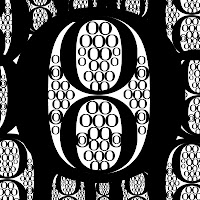 If our planet is not alone, if it is one of billions of planets, orbiting billions of stars, in hundreds of billions of galaxies inside our universe, could our universe also be one of many? It may turn out that the concept of our universe as astronomers see it now is a very restrictive one. As each individual has their own brain, is there a universe for each probability of existence? For if there are other universes, their laws of nature could all be set differently in their own big-bangs. If our laws of nature are only one set of values amongst a limitless possibility of others, then the fine-tuning of our universe falls once again into the realms of chance. Our law of gravity would be but one of trillions of different laws of gravity. The same goes for the cosmic constant, the electronic charge - and suddenly in this idea of a "multiverse" - amongst so many possibilities our existence is not so surprising.
If our planet is not alone, if it is one of billions of planets, orbiting billions of stars, in hundreds of billions of galaxies inside our universe, could our universe also be one of many? It may turn out that the concept of our universe as astronomers see it now is a very restrictive one. As each individual has their own brain, is there a universe for each probability of existence? For if there are other universes, their laws of nature could all be set differently in their own big-bangs. If our laws of nature are only one set of values amongst a limitless possibility of others, then the fine-tuning of our universe falls once again into the realms of chance. Our law of gravity would be but one of trillions of different laws of gravity. The same goes for the cosmic constant, the electronic charge - and suddenly in this idea of a "multiverse" - amongst so many possibilities our existence is not so surprising.
With this theory, cosmologists could again accept the fine-tuning of our existence without the need for a tuner, or creator. The concept of the "multi-verse" saves the scientific universe, and provides a natural mechanism to explain all the diversity we see. Yet, theoretically, these other universes will always be beyond the limit of our telescopes, so is the theory of the multi-verse really a scientific solution, when it cannot be proved, or is it a scientific theory until you can otherwise rule it out?
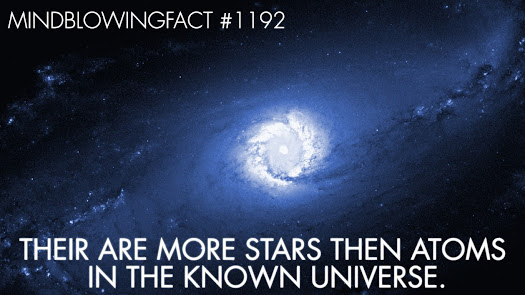
Are not all stars made from atoms? However there are as many atoms in a single atom of our DNA then there are stars in most galaxies and more atoms in a human eye than all the stars in the known universe.
Well, when cosmologists began to ponder on these multiple universes, it seemed to send them straight back to a universal brain - and to our own - once more. Because in this grander universe, who is to say there is not a universe that displays more complexity and greater brains than ours? Although we are completely cut off from these universes, it is not impossible that one day we might be able to prove their existence. It may not be a question we can even address at the present, but similar to the atomic theory being put forward by ancient Greeks two and a half thousand years ago which took a couple of thousand years to verify, it will take ingenious future minds with new ways of thinking before we really become totally comfortable with the hard science of these ideas.
In the first part of this series we saw how through evolution, humans at some stage surpassed other creatures in intelligence - even our primate cousins - although we have no idea how inevitable that was. The four billion years of Darwinian evolution are now part of the culture, with the human species seen as its culmination, but there is no specific reason to think that intelligence couldn't develop further. Astronomers know that our Sun is less than halfway through its life, and at that the time the Sun vaporises everything in its path as its dies, the life that will be on Earth then will be as different to us than we are to bacterium - because evolution will have gone on.
Thus the theory goes that our future in this universe can tell us something about life in more advanced universes; so what is the future for intelligence? Will our evolution focus mainly on our brains, rather than our bodies from now on, to have this brain - or conciousness - of the universe ultimately wired to our own?
Neurologists believe we have the most complex nervous system on Earth, and thus related to that we consider ourselves the most intelligent (although some of us do tend to act as though they are below par with our primate cousins) and maybe in the universe - at least OUR universe, if the theory holds. We started from a "chimpanzee library" and have tripled our brain in size over millions of years - and many wonder if expansion is possible.
Neurologists that have studied the structure of the brain, and wondered if it is not just the functioning of the brain, but the actual organ (i.e., its size) that factors in our intelligence. Would a larger brain increase our intelligence, and affect our evolution? Well studies seem to show that as an organ of intelligence, the brain has reached its limit in physical size. If it becomes bigger, communication between the different parts of the brain slow down, and it actually becomes less efficient.
We can't change the hardware technology of our brain, and in one way, as far as our brain is concerned we are prisoners of our ancestors from millions of years ago. So, unless nature invents a new way for organic intelligence to evolve, it seems that in this universe, intelligence as personified by humans has reached its physical potential within the matter of the brain itself. However, some see the physical side of evolution as just one stage, and that the next stage has already begun.
It's now believed that the power behind increasingly complexity on Earth used to the driving force of evolution - through natural and sexual selection - but this has changed in the last few thousand years. Proponents to this theory claim it's not evolution, but our cultural development that has taken over. Formalised into scientific, technological and medical development, this is where the action is right now. If we become more intelligent it will be that we use technology and medicine to subvert the natural laws, or we gain knowledge that unlocks the hidden powers of the mind.
Simply put, the physical constraints of the brain may have been reached, but the mysterious expanse of the mind is limitless. Scientists say breakthroughs could happen in a matter of decades. But should we love the brain, just because it is what makes us, uniquely us? Because we are far from perfect.
The neurosis of neuroscience
Neuroscience has entered the public consciousness, and changed the way we talk about ourselves. But some experts warn us that much of what passes as knowledge is inaccurate. We talk about left- and right-brain thinking, brainstorming and brain disorders. Differences between the male and female brain are the subject of regular press speculation and newspapers publish stories on brain scans that claim to explain everything from love to memory.
Brain science is persistently championed as an answer to life's deepest problems; we delve in hoping it will reveal the deepest mysteries of what makes us who we are. But as our definitions of God isn't a mystery you can nail down with any one book, the brain is the same. It is far from simple.
FOLK NEUROSCIENCE: Popular misconceptions?■ The "left-brain" is rational, the "right-brain" is creative: The hemispheres have different specialisations (the left usually has key language areas, for example) but there is no clear rational-creative split and you need both hemispheres to be successful at either. Some believe you can no more do right-brain thinking than you can do rear-brain thinking, while others adhere to a "left-right" theory but suggest we need to balance using both sides of the brain.
■ Dopamine is a pleasure chemical: Dopamine has many functions in the brain, from supporting concentration to regulating the production of breast milk (it is also a neurotransmitter that helps control info, especially memory). Even in its most closely associated functioning it is usually considered to be involved in motivation (wanting) rather than the feeling of pleasure itself. However, other studies suggest it IS the brain's reward chemical It also turns out dopamine decreases with age, but increases with sexual activity. Some experts suggest we should cuddle, kick up our heels, and make some loving memories together.
■ Low serotonin levels causes depression: This is said to be concept almost entirely promoted by pharmaceutical companies in the 1980s and 90s to sell serotonin-enhancing drugs like Prozac. It's said there is no consistent evidence for it, but some nutritionists believe serotonin to be a "feel good" hormone, and will suggest foods that help in its production.
■ Video games, TV violence, porn or any other social spectre of the moment "rewires the brain": While what we watch can influence us, everything "rewires the brain" as the brain works by making and remaking connections. This is often used in a contradictory fashion to suggest that the brain is both particularly susceptible to change but once changed, can't change back. The plasticity of the brain is being well-documented, however, and we can rewire our brain.
■ We have no control over our brain but we can control our mind: The mind and the brain are the same thing described in different ways and they make us who we are. Trying to suggest one causes the other is like saying wetness causes water.
The human brain is a very powerful tool, and we have yet to unlock its deepest mysteries. Scientists have published the most detailed brain scans "the world has ever seen" as part of a project to understand how the organ works, and we are just on the threshold of understanding.
Read the most often quoted brain myths.
Some believe there is simply too much potential left unlocked within our minds. Whatever physical qualities a creature is born with, it is meant to use those qualities completely in order to fulfil its natural function in life. Whatever kind of brain a person is born with, each person is mean to use it completely, not partially. Experts say the brain is a powerful mechanism: Give it a target and will hit it, and success is an process that can be learned by someone using their complete brain.
Scientific research has revealed that there are different brainwaves, and many dynamic thought leaders, scholars and the most intelligent share similar brainwave frequencies and display distinct peak brain states while engaged in mental tasks. A few experts put this down to the fact that when we read at a higher level, we're thinking at a higher level.
Experts suggest to use more of your brain, you have to learn to use your brain not just consciously, but also at subconscious levels, because it's believed that it's your subconscious mind that is the real power centre of your being. It's believed this can be helped along with binaural beats and isochronic tones, something as basic and natural as sound can be endowed with brain regulating and performance enhancing properties.
Read how to use music for a brain boost.
Although some believe it's debatable whether listening to certain types of music (such as classical music) will make us noticeably smarter, the importance of music is bigger than we might think for overall body benefits, as neuroscientists have stated that rhythmic sounds engage in networks of the brain which allows you to move and synchronise different muscle groups when exercising.
Listening to new music, too, is rewarding for the brain, a study suggests. Using MRI scans, a Canadian team of scientists found that areas in the reward centre of the brain became active when people heard a song for the first time. It's also suggested that this part of the brain will be unique for each individual, because we've all heard different music in the past, so our experiences shape our brains and makes each individual brain unique.
And it's not just music that may have an effect. There are reports that an electric current to the brain can boost maths ability, and that such brain stimulation promises a "long-lasting" maths boost, say Oxford University researchers. It is believed that the technique could be used to help people with learning difficulties and other conditions such as dementia and Alzheimer's. Others are utilising such technologies in shower jet sprays, to allow the water to massage the head and soothe the mind. There is also evidence that cognitive behavioural therapy (CBT) can reduce depression, while brain training and self-help books are believed to help to treat it.
Disorders of the brain and mind can be viewed as a major burden on society - on the sufferer, the carers and the health system. The challenge is how we build knowledge that will allow us to develop drugs and therapies that can help patients and their families, but there are those that also believe the ability to enhance the mind can be used for a wider range of healing purposes. We're told to eat our five-a-day (and even seven-a-day) but finding a few minutes in your timetable to listen to something as relaxing as birdsong could be just as good for us cognitively. Described by some as mind-body medicine, proponents point to studies in the journal Circulation: Cardiovascular Quality and Outcomes claiming it is the strongest research yet to demonstrate the remarkable power of simple, mindful meditation to alleviate stress and reduce the risk of heart attack, stroke and even early death from heart disease.
The researchers observed a group of 201 African-American men and women who were diagnosed with coronary artery disease, for about five years. Results showed that the group that practised regular meditation had reduced their risk of heart attack, stroke and premature death by a remarkable 48 percent. They also showed a reduction in blood pressure, stress and anger.
Meditation has been shown in other studies to dramatically reduce stress, improve emotional balance, increase quality of life, reduce cortisol levels and boost immunity. It is also known to offer benefits such like greater cognitive ability and increased healing capacity. The long-term study in the cardiovascular journal provides further substantiation and insight into these powerful effects. In fact, scientists are just beginning to scratch the surface in terms of meditation's healing potential. As studies continue, we can expect to see this ancient practice becoming a standard in treatment and prevention programs for numerous chronic illnesses.
Meditation as mind-body medicine.
Other research throws up evidence that brains can "talk" to one another using electronic links, while the self-healing capacity of the brain has been discovered in studies that show it has mechanisms it can use to protect itself and keep brain cells alive. Scientists have also raised the prospect that deep brain stimulation could help people suffering from severe anorexia nervosa - suggesting that the strength of your brain is directly related to your overall body strength.
Read how to fuel your brain with food boosters.
In all these different ways, it's believed human beings will use their technical and medical ingenuity to change and modify their own nature. Some will do this spiritually by harmonising with the universal energies or global brain consciousness to evolve the mind to a higher state, others will use the advancements of new technologies to reach out and touch the new horizons of evolution that wait for us on the cusp of our spiritual awakening at this current time.
This is the next stage of our development that we are just beginning to enter still at the beginnings of our new millennium. Technology already infiltrates almost every aspect of our lives, but some philosophers believe that technology could gradually replace our lives, so the spiritual option of awakening the limitless potential of the authentic self hard-wired to a mindful, consciously aware brain seems to be the way to go.
if you have enjoyed this second part of my mini series, and feel you have had your eyes opened, then you will love the fantastic secrets that await us in the final part - where we delve even deeper into our human nature, and our brain, and why we should love this most mysterious and complex of organs that helps to make us tick ever more efficiently as the decades go by.
Read more in this series: -1 -2 -3
Yours in love,











 |
| 

















0 comments:
Post a Comment